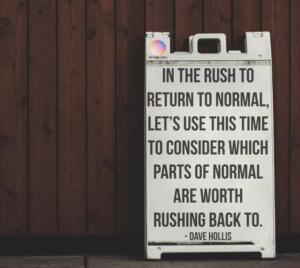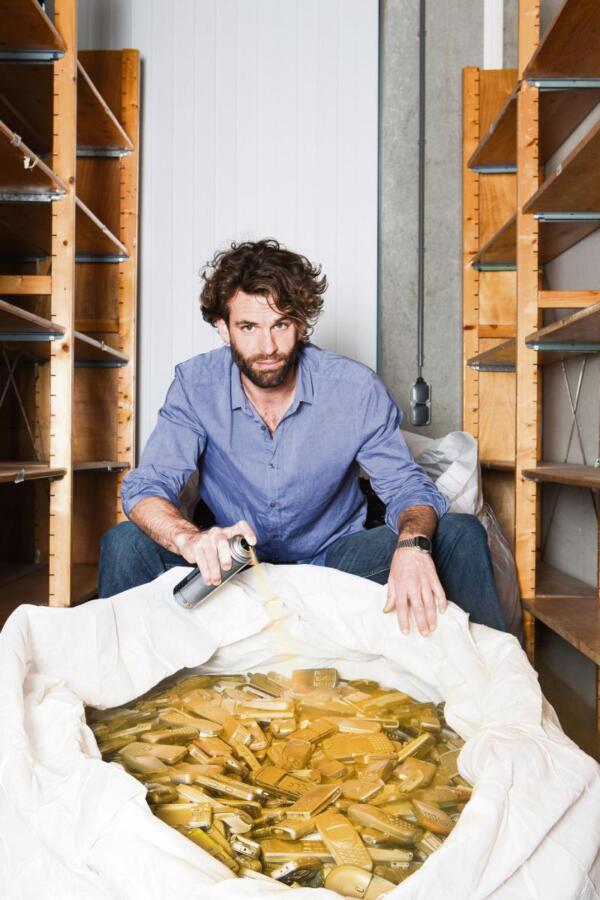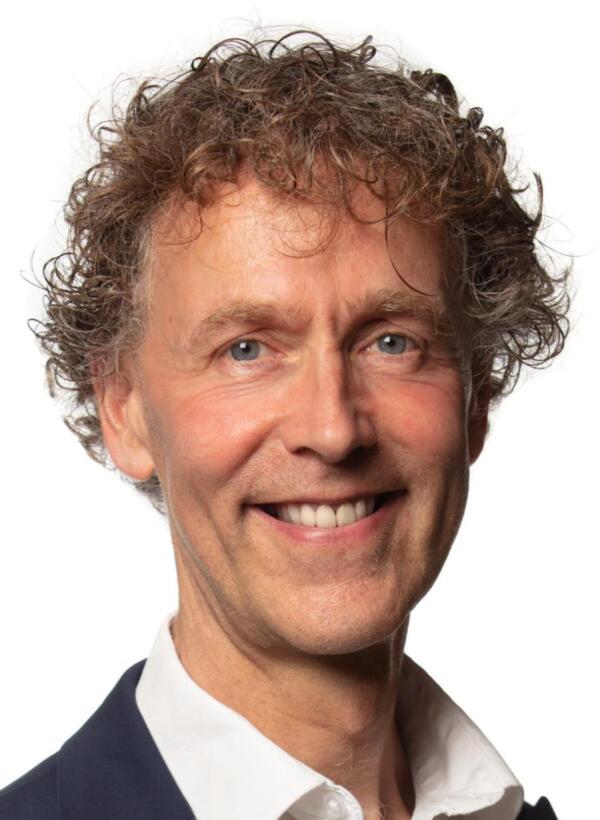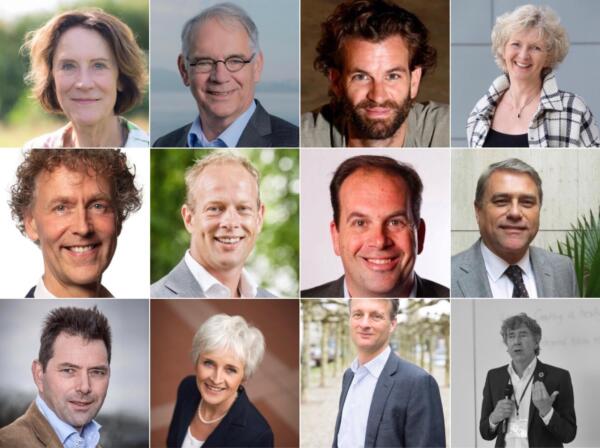No time to waste a crisis, let’s move from ego to eco!
April 16, 2020
Josse Kunst is a circular economy entrepreneur. He has lived and worked in China, Japan, Australia, New Zealand and The Netherlands and has 25+ years business experience in more than 60 countries worldwide. After leading DSM’s circular economy initiative Niaga® for four years he has recently founded his own company Kiduara (Swahili for ‘small circles’), in which he focusses on molecular recycling, designing with advanced bio-based materials and impact investing in early stage circular start-ups. He is currently active in molecular recycling projects for polyester, polyamide 6 as well as polylactic acid.
Disclaimer: Holland Circular Hotspot publishes opinions on CE from a wide range of perspectives in hopes of promoting constructive debate about consequential questions about Circular Economy.
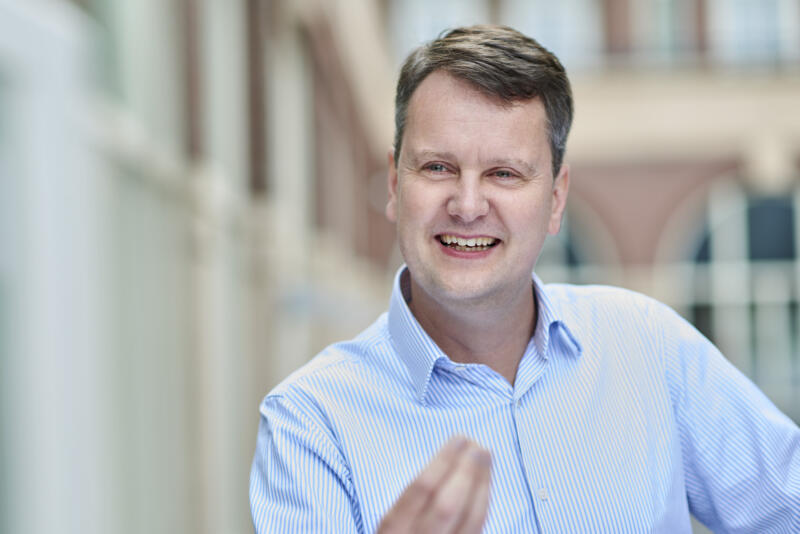
"Humanity's consumption is based on the believe system that too much is not enough"
We live in unprecedented times. The way we interact with each other is turned upside down and shifted by 1.5 m in distance. Economies have come to a standstill, business owners struggle for survival, and travel has slowed down to a trickle. You may feel it is not the right time for innovation, for start-ups to flourish, no time to invest in the long term.
Think again.
Let’s use this time to listen. To ourselves, to the people around us, the people we work with but also to observe how we have organized our way of living. Is it in balance with what the earth can provide? Is it sustainable not only from a money point of view but also from a social and environmental perspective? If you take five, I’m sure you can think of at least 3 meaningful ways in which you, your family and your business can make an impactful change.
Humanity’s consumption is based on the believe system that too much is not enough. This mindset is at the core for unprecedented consumption. We buy stuff at the lowest cost we can get it, fly it in from around the world, and discard a huge volume in packaging material in the process every single time. Simply because we do not want to get up and walk to the shop nearby. How much sense does it make to take oil out of the earth in Saudi Arabia, ship it to China to make plastics and fibers, move it to a sweat shop in Bangladesh to make garments out of it, brand it from Europe and the US so the major part of the margin stays there, wear it for one season and then discard it to have it incinerated, turning it into a greenhouse gas heating up the earth.
Come on, we can do better than that!
Molecular recycling: turning the materials loop for plastic into a closed loop
In The Netherlands there are exciting developments going on though with regards to turning the materials loop for plastic into a closed loop. The awareness is growing that plastic is an amazing material, but if ill handled, it causes major pollution and poses a health hazard. Many companies realize that in a circular economy you need to work and think different, think in systems rather than transactions. You need to get together, share your know-how and competences and radically change the way we source materials, design products, retail them, collect them after use and reuse the materials.
The Netherlands is a true hotspot for this change into a circular economy. At the core of this is technology. Deep understanding of chemistry and application know-how can be combined to design daily used stuff in such a way that the materials do not need to go to waste. A great example is the focus in The Netherlands on molecular recycling. Where traditionally recycling by means of grinding and extrusion is commonplace this technology lacks the ability to remove color and additives, and therefore the recycled plastic can be used mainly in less demanding applications. And we only need so many benches in the park or speed bumps on the road.
Molecular recycling offers a solution. This is especially the case for reversible polymers. Polymers that are made in an equilibrium reaction that makes it easy to push the reaction back from the polymer to the building blocks. A well-known example is polyester, but also polyamide 6 (aka Nylon 6) as well as polylactic acid are fantastic examples of molecules that are intrinsically circular. Polylactic acid or PLA is thereby even biobased and has a carbon footprint of only about 25 % of other major plastics such as polyester and can be grown from crops that can be harvested in one growth season. The world leader in PLA, Total-Corbion, is headquartered in The Netherlands.
Some of the great examples in the Dutch molecular recycling scene are the innovative technologies for molecular recycling of polyester developed by companies like Ioniqa, Worn Again and CuRe Technology. CuRe Technology takes the polyester closed loop a step further in their pilot plant in Emmen by focusing on the whole process from waste all the way to a final product made out of polyester, either as thermoform in packaging or in fibers for textile or carpet. An impressive consortium is shaping up combining forces around the world and exciting them to innovate together in Emmen, The Netherlands, focusing on creating the lowest energy consuming route towards fully chemically recycled polyester.
These companies stand out because they have the purpose driven spirit to persevere no matter what, and as SMEs or as start-up, they catalyze industrial chains to work together and turn the complexity of closing the plastics loop into a competitive advantage. It’s exciting to see giants like Unilever stepping into the game with their collaboration with technology partners, but also by teaming up with companies like FrieslandCampina and Heineken in their Fieldlab, where circular packaging design and sourcing is the norm.
Waste collectors such as Omrin set the tone by creating cross-industry teams, and together with the National Test Center for Circular Plastics in Heerenveen they have created a hot spot within the north of the Netherlands for taking circularity for vision to implementation. Know-how centers such as TNO, NHL Stenden, Wageningen University, Brightlands Material Center and the University of Groningen spearhead major European and national projects to create scientific breakthroughs.
This already attracts global leading companies to join the Dutch movement. A good example is Aquafil, a company with its base in the deeply impacted north of Italy, where even today the CEO Giulio Bonazzi continues to radiate his firm believe that innovation and closing the loop on materials is the only way forward. Increasingly Aquafil is working with carpet manufacturers in The Netherlands like Interface and Edel to change the way we decorate our floors in a sustainable way. At another ed of the scale small and beautiful international startups join the programs offered by the Brightlands Innovation Factory in Geleen, with many of them changing the way we use materials. Great examples are Indresmat, creating fully circular and energy saving materials for window frames and construction, as well as Arapaha, creating high end and beautiful durable goods made from advanced biobased materials that are not only recyclable but will be guaranteed to be recycled.
In summary, The Netherlands already was a guide in making society circular long before the Covid-19 crisis. Let us double down on that momentum and use the reopening of the economy, when it finally comes, as a huge opportunity for a reset. Let’s use our collective know-how, network and capital to make us all remember this moment as the moment we started to radically change the way we live, consume and balance all elements of a healthy society.
Work with and in The Netherlands to see it with your own eyes, we welcome you wholeheartedly.
